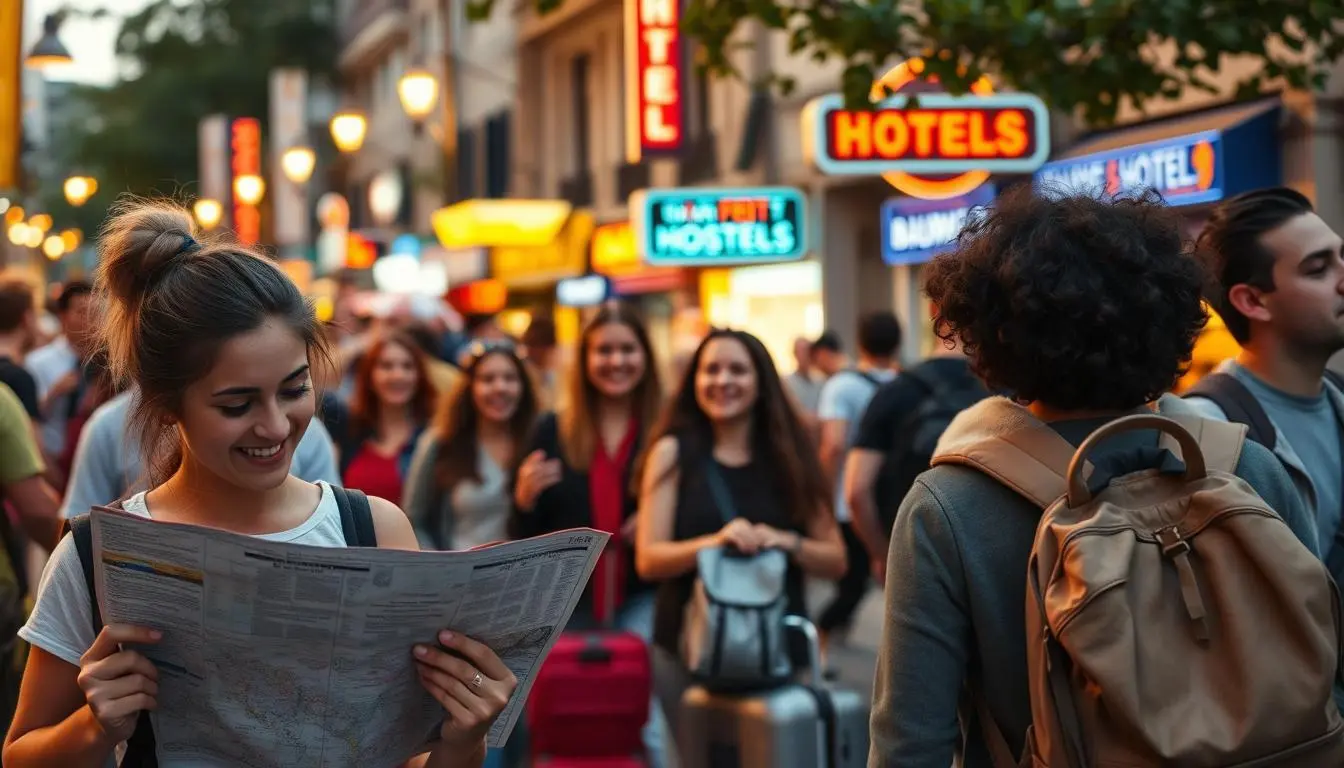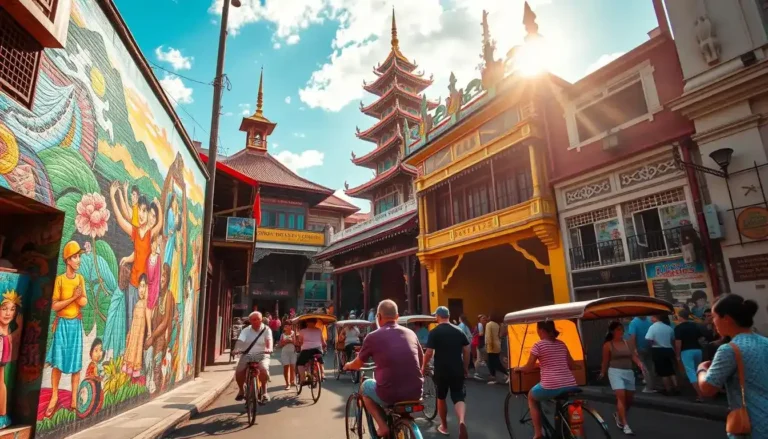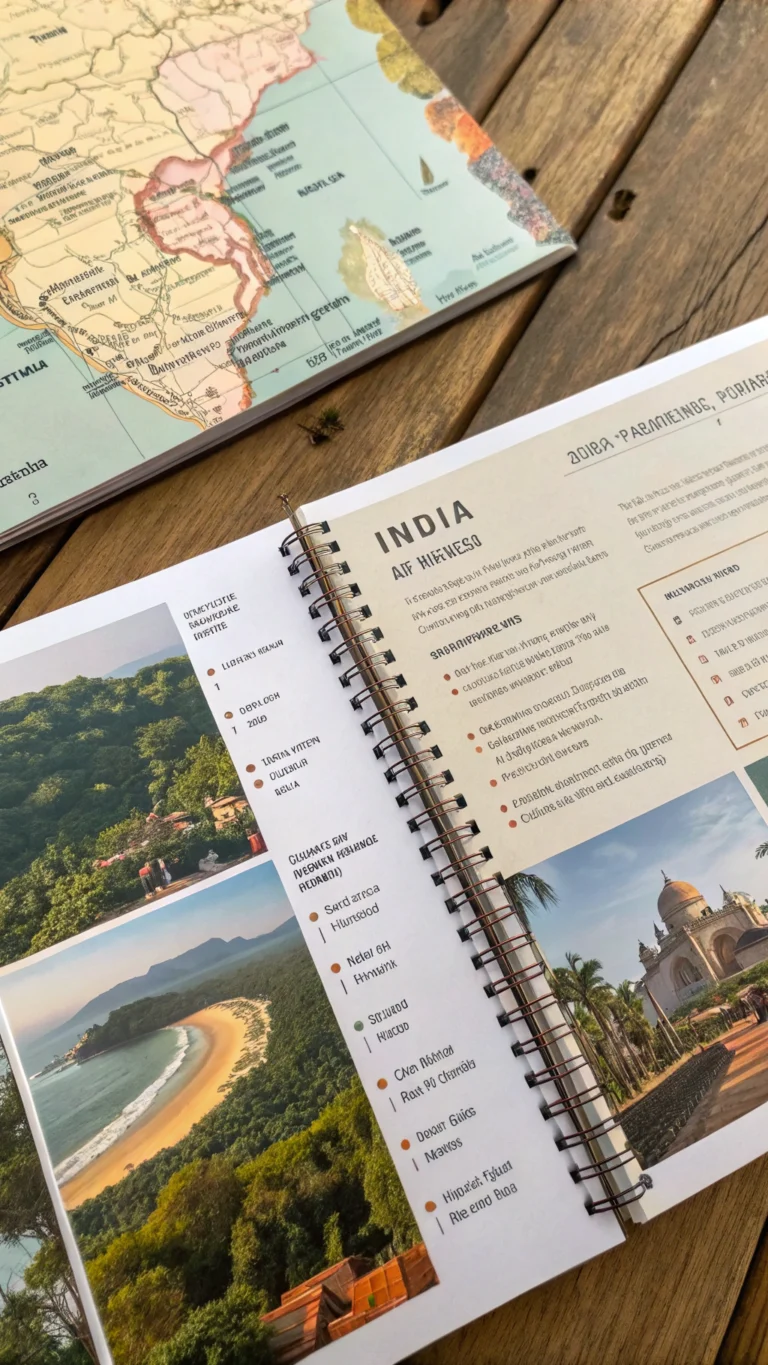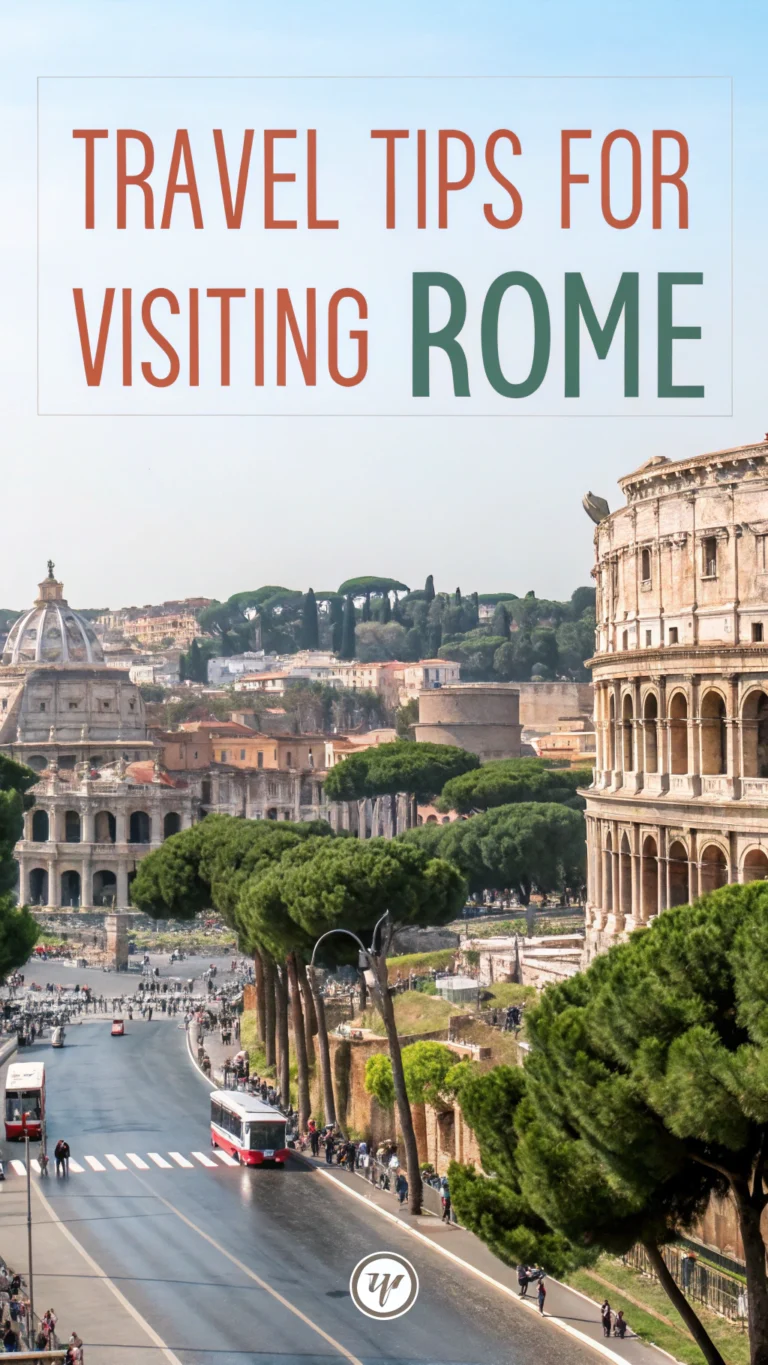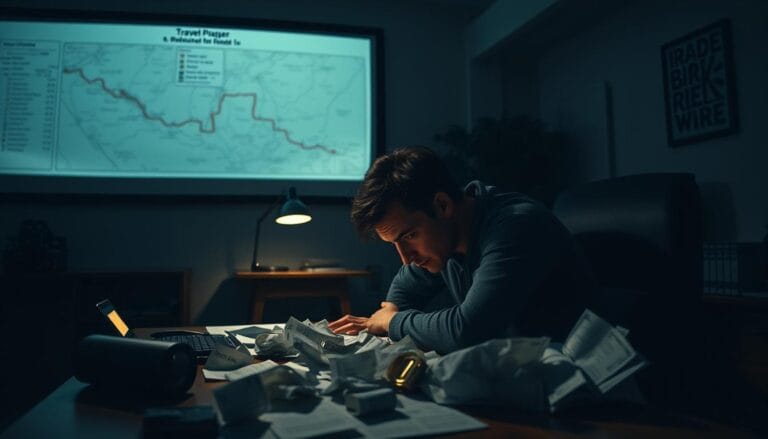How I Traveled the World on Just $50 a Day – And How You Can Too!
Exploring the world without breaking the bank is a tantalizing prospect for many. Budget travel is becoming increasingly popular as people seek affordable destinations and ways to make their travel dollars stretch further.
The good news is that with some planning and research, it’s entirely possible to have a rich and fulfilling travel experience on a budget. Whether you’re a seasoned traveler or just starting to plan your first trip, there are numerous ways to save money without sacrificing the quality of your experience.
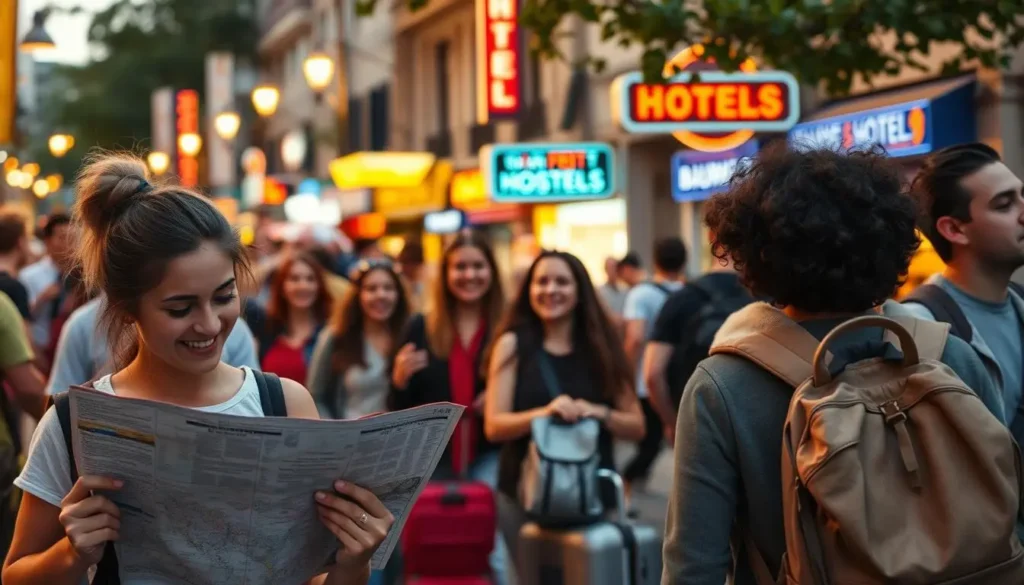
From finding cheap accommodations to eating local cuisine, there are many strategies for traveling on a budget. In this article, we’ll explore some of the best tips and tricks for making your travel dreams a reality without overspending.
Key Takeaways
- Plan ahead to save money on travel
- Research affordable destinations
- Use budget-friendly accommodations and transportation
- Eat local cuisine to experience the culture
- Be flexible with your travel dates
My Journey From Dreamer to Budget World Traveler
Turning my travel aspirations into a budget-friendly reality required more than just a desire to explore; it demanded a radical shift in my mindset.
The Moment I Decided to See the World
The day I decided to embark on my journey was more than just a spontaneous decision; it was the culmination of years of dreaming and planning. I realized that with the right budget travel tips, I could make my travel dreams a reality.
I started by challenging my own perceptions of what it means to travel affordably. I discovered that affordable travel isn’t just about cutting costs; it’s about being smart with your resources.
Breaking Free from the “Travel Is Expensive” Myth
One of the biggest hurdles I faced was overcoming the travel myths that had been holding me back. Many believe that traveling has to be expensive, but I found this to be far from the truth.
By adopting a few simple strategies, such as planning ahead, being flexible with my travel dates, and seeking out free or low-cost activities, I was able to significantly reduce my expenses. Here are some key takeaways:
- Researching destinations thoroughly to find affordable accommodations
- Using travel apps to find the cheapest flights and transportation options
- Avoiding touristy areas where prices tend to be inflated
As I broke free from the “travel is expensive” myth, I discovered a world of possibilities that I never knew existed. With the right mindset and a few budget travel tips, anyone can become a budget world traveler.
The Mindset Shift: How I Traveled the World on Just $50 a Day – And How You Can Too!
My journey taught me that traveling on $50 a day isn’t just about being frugal; it’s about changing your perspective. Adopting a budget travel lifestyle means more than just cutting costs; it involves a fundamental shift in how you experience the world.
Embracing Slow Travel as a Lifestyle
Embracing slow travel was a game-changer for me. Instead of rushing from one destination to another, I started to immerse myself in each place, allowing the local culture to seep into my daily life. Slow travel isn’t just about saving money on transportation; it’s about truly experiencing the essence of a location. By staying in one place for longer, I was able to form meaningful connections with the locals and other travelers, enriching my travel experience.
This approach also allowed me to adopt a more sustainable travel practice, reducing my carbon footprint by minimizing constant movement. It’s a more relaxed way of traveling, giving you the opportunity to appreciate the small things and find joy in the everyday moments.
Prioritizing Experiences Over Luxury
One of the most significant mindset shifts for me was prioritizing experiences over luxury. I realized that the memories I made and the experiences I had were far more valuable than any luxury item or high-end accommodation. Whether it was trying local street food, participating in community events, or simply taking a moment to watch the sunset, these experiences enriched my journey in ways that luxury never could.
By focusing on what truly added value to my travels, I was able to create a richer, more authentic travel experience. It’s not about depriving yourself of comforts; it’s about choosing to spend your money on things that will leave a lasting impact. This mindset allowed me to travel further and longer on my budget, making my travel dreams a reality.
Planning Your Budget Adventure: The 6-Month Preparation Guide
Embarking on a budget adventure requires meticulous planning, and with six months to prepare, you can travel the world without breaking the bank. A well-planned budget is the foundation of a successful trip, allowing you to make the most of your $50 daily budget.
Researching Cost-Effective Destinations
Research is key to finding cost-effective destinations. Look for places that offer affordable accommodation, food, and activities. Websites like Hostelworld and Nomad List can help you compare prices and find the best deals. Consider traveling during the off-season to save even more.
- Use travel blogs and forums to gather information about budget-friendly destinations.
- Compare prices across different travel websites to find the best deals.
- Consider alternative airports and transportation options to save money.
Creating a Realistic Travel Budget Spreadsheet
A realistic travel budget spreadsheet is essential for tracking your expenses and staying within your means. Start by listing your expected expenses, including transportation, accommodation, food, and activities. Use Microsoft Excel or Google Sheets to create a budget template that you can easily update.
Some key expenses to consider include:
- Transportation costs, including flights and local transportation.
- Accommodation costs, including hostels and hotels.
- Food and drink expenses, including street food and groceries.
Essential Apps and Websites for Budget Travelers
There are many apps and websites that can help you save money and stay organized while traveling. Some essential tools include:
- Hopper for finding cheap flights.
- Google Translate for communicating with locals.
- TripIt for organizing your itinerary.
By utilizing these tools and staying focused on your budget, you can have a successful and enjoyable trip.
Finding Affordable Accommodation Around the Globe
When traveling on a tight budget, securing affordable accommodation is paramount. The right choice can make a significant difference in your overall travel experience, allowing you to allocate more resources to exploring your destination.
There are several options for budget-conscious travelers, each with its unique benefits. Understanding these can help you make informed decisions.
Hostels, Guesthouses, and Budget Hotels Under $20
For those on a very tight budget, hostels and guesthouses offer affordable lodging. Many hostels provide dormitory-style accommodation, while guesthouses often offer a more homely atmosphere. Budget hotels are another option, sometimes offering private rooms at competitive rates.
- Dorm rooms in hostels can cost between $5-$15 per night.
- Guesthouses often charge $15-$25 per night for a private room.
- Budget hotels can be found for $20-$30 per night.
| Accommodation Type | Average Cost per Night | Features |
| Hostels (Dorm) | $5-$15 | Shared or dormitory rooms, communal facilities |
| Guesthouses | $15-$25 | Private rooms, sometimes with en-suite bathrooms |
| Budget Hotels | $20-$30 | Private rooms, basic amenities |
House Sitting and Home Exchange Opportunities
House sitting and home exchange are alternative accommodation options that can be cost-effective. These involve staying in someone’s home either by taking care of their property or swapping homes.
Platforms like TrustedHousesitters and HomeExchange.com facilitate these arrangements, offering a wide range of properties worldwide.
The Art of Couchsurfing Safely and Respectfully
Couchsurfing is a community-driven platform where travelers can stay with locals for free. To couchsurf safely, it’s essential to read reviews, communicate clearly with hosts, and respect their space.
Always check the host’s profile and reviews before making a request, and be prepared to share information about yourself as well.
Transportation Hacks That Saved Me Thousands
After months of traveling, I discovered that transportation costs can be significantly reduced with the right strategies. As someone who has traveled extensively on a budget, I’ve learned that being flexible and informed can make all the difference in your travel expenses.
Transportation is a crucial aspect of traveling, and finding the right hacks can save you a substantial amount of money. Whether you’re flying, taking trains, or using public transport, there are numerous ways to cut down on costs without compromising on comfort or convenience.
Scoring Cheap Flights and Alternative Airports
One of the most effective ways to save on transportation is by scoring cheap flights. This involves being flexible with your travel dates, using flight comparison websites, and considering alternative airports. For instance, flying into a nearby city instead of a major hub can sometimes save you hundreds of dollars.
Tips for Cheap Flights:
- Use fare comparison tools like Google Flights or Skyscanner.
- Be flexible with your travel dates to find the cheapest days to fly.
- Consider flying into alternative airports.
Public Transportation vs. Tourist Options
When it comes to getting around, travelers often face the dilemma of choosing between public transportation and tourist-friendly options. Public transportation is not only cheaper but also a more authentic way to experience the local culture.
Benefits of Public Transportation:
- It’s cost-effective.
- You get to experience local life.
- It’s often more efficient than tourist-friendly options.
When to Splurge and When to Save on Getting Around
While saving money is crucial, there are times when it’s worth splurging on transportation. For example, if you’re short on time or traveling to a remote area, opting for a more expensive but convenient option might be worth the cost.
Splurging Wisely:
- Consider the time saved by opting for a faster, more expensive option.
- Weigh the cost against the convenience and safety it offers.
Eating Well Without Breaking the Bank
You can enjoy the flavors of your destination without blowing your budget by making a few simple choices. Eating on a budget doesn’t mean sacrificing taste or experience; it’s about being mindful of where and how you eat.

Street Food Adventures: Safety and Savings
Street food is not only a delicious way to experience local cuisine, but it’s also incredibly budget-friendly. When trying street food, look for stalls or vendors with a high turnover of customers, as this is often a sign of freshness and safety. Some tips for enjoying street food safely include:
- Opting for vendors that are popular with locals
- Checking that the food is cooked thoroughly and served hot
- Avoiding raw or undercooked meat, seafood, or eggs
Grocery Shopping and Cooking While Traveling
Another effective way to save money on food while traveling is by grocery shopping and cooking your own meals. Many hostels and Airbnb apartments offer kitchen facilities that you can use to prepare simple meals. Consider buying local produce and staples to make your own versions of meals you enjoy at home. Some benefits of grocery shopping while traveling include:
- Saving money by avoiding restaurant meals
- Experiencing local markets and food culture
- Having control over your diet and nutrition
By combining street food adventures with occasional grocery shopping and cooking, you can enjoy a varied and budget-friendly culinary experience while traveling.
Free and Low-Cost Activities in Every Destination
Exploring the world doesn’t have to break the bank, as there are numerous free and low-cost activities to enjoy in every destination. Whether you’re wandering through a bustling city or relaxing on a serene beach, you can have a rich and fulfilling travel experience without overspending.
Finding Hidden Gems Off the Tourist Path
One of the joys of traveling is discovering hidden gems that are off the beaten path. These can include local markets, lesser-known historical sites, and scenic viewpoints that offer breathtaking views without the crowds.
To find these gems, consider talking to locals, exploring neighborhoods that are not typically tourist areas, and using online resources such as travel blogs and forums.
Museum Free Days and City Passes Worth the Money
Many museums and cultural institutions offer free admission days or discounted rates at certain times. Planning your itinerary around these events can save you money and enrich your travel experience.
Additionally, city passes can provide significant savings if you plan to visit multiple attractions. Be sure to calculate the cost-benefit to ensure it’s worth the investment for your travel plans.
| City | Free Activity | Cost-saving Tip |
| Paris | Visit the Luxembourg Gardens | Free admission |
| New York | Walk across the Brooklyn Bridge | Free |
| Tokyo | Explore the Shinjuku Gyoen | Low entrance fee |
Connecting with Locals for Authentic Experiences
Engaging with locals is a great way to experience the authentic culture of a place. This can be done through language exchange programs, local tours, or simply by striking up a conversation at a café or market.
Not only does this provide a more meaningful travel experience, but it can also lead to discovering local hidden gems that are not listed in typical guidebooks.
Handling Money and Unexpected Expenses Abroad
As you embark on your international journey, understanding how to handle your money and prepare for unexpected expenses is vital. Managing finances abroad can be challenging, but with the right strategies, you can minimize financial stress and enjoy your trip.
Best Banking Options for International Travelers
Choosing the right bank is crucial for international travel. Look for banks that offer low or no foreign transaction fees, easy access to your money through a wide ATM network, and robust online banking services. Some banks also offer specialized debit or credit cards for travelers, which can be a convenient option.
Creating an Emergency Fund for Your Journey
An emergency fund is essential for covering unexpected expenses while traveling. Aim to save 3-6 months’ worth of living expenses in a readily accessible savings account. Consider setting up automatic transfers to build this fund gradually.
| Banking Feature | Traditional Bank | Specialized Travel Bank |
| Foreign Transaction Fees | High (2-3%) | Low or None |
| ATM Network | Limited | Extensive |
| Online Banking | Basic | Advanced |
Insurance Options That Actually Make Sense
Travel insurance can provide peace of mind and financial protection against unexpected medical or travel-related expenses. Look for policies that cover trip cancellations, medical emergencies, and evacuations. Compare different insurance providers to find the best fit for your needs.

Regional Budget Travel Guides: Where Your $50 Goes Furthest
As a seasoned traveler, I’ve discovered that certain regions offer more bang for your buck than others. When it comes to regional budget travel, understanding the local cost of living and being flexible with your travel plans can make all the difference.
Let’s dive into some of the most affordable regions around the world and explore how to make the most of your travel budget.
Southeast Asia on $30-40 a Day
Southeast Asia is a haven for budget travelers, with countries like Cambodia, Vietnam, and Laos offering incredible value for money. You can enjoy delicious street food, stay in comfortable accommodations, and explore stunning landscapes all on a daily budget of $30-40.
Eastern Europe’s Best Budget Destinations
Eastern Europe is another region that offers great value for travelers. Countries like Poland, Hungary, and Czech Republic are rich in history and culture, with many attractions and activities available at affordable prices.
Latin America: Balancing Safety and Savings
Latin America can be a budget-friendly destination if you know where to go. Countries like Peru and Colombia have seen significant improvements in safety and offer a range of affordable experiences, from exploring ancient ruins to enjoying vibrant city life.
Budget-Friendly Spots in Expensive Regions
Even in more expensive regions, there are often hidden gems that can be explored on a budget. For example, in Western Europe, countries like Portugal offer more affordable options compared to their neighbors.
Conclusion: Your World Adventure Awaits
Embarking on a world adventure doesn’t have to break the bank. By adopting the right mindset, planning carefully, and making smart choices, you can travel the globe on a budget. The journey from being a dreamer to a budget world traveler is within reach, and it’s all about embracing the lifestyle of slow travel, prioritizing experiences over luxury, and being open to new adventures.
As you’ve learned through this guide, finding affordable accommodations, navigating transportation options, eating well without overspending, and discovering free or low-cost activities are all crucial elements of budget travel. With the right tools and knowledge, you can have a fulfilling travel experience without draining your savings. Whether you’re drawn to the vibrant streets of Southeast Asia, the historic landscapes of Eastern Europe, or the vibrant cultures of Latin America, your world adventure awaits.
So, start planning, stay flexible, and keep your sense of adventure sharp. The world is full of incredible experiences waiting to be had, and with a budget of just $50 a day, the possibilities are endless. Let this be your travel inspiration to explore, discover, and enjoy the richness of our world.
FAQ
How can I travel the world on a tight budget?
To travel the world on a tight budget, consider adopting a slow travel mindset, prioritizing experiences over luxury, and being mindful of your daily expenses. You can also research cost-effective destinations, create a realistic travel budget, and utilize helpful travel apps and websites.
What are some affordable accommodation options for travelers?
Affordable accommodation options include hostels, guesthouses, and budget hotels under $20, house sitting, home exchange opportunities, and couchsurfing. When using these options, be sure to research and take necessary safety precautions.
How can I save money on transportation while traveling?
To save money on transportation, look for cheap flights and alternative airports, use public transportation instead of tourist options, and be strategic about when to splurge or save on getting around.
What are some ways to eat affordably while traveling?
Enjoying street food safely, grocery shopping to cook your own meals, and avoiding expensive tourist restaurants are all great ways to eat affordably while traveling.
How can I find free or low-cost activities in my destination?
Researching hidden gems off the tourist path, utilizing museum free days, and connecting with locals for authentic experiences can help you find free or low-cost activities in your destination.
What are some best practices for managing finances while abroad?
Choosing the right bank, creating an emergency fund, and selecting appropriate travel insurance can help you manage your finances effectively while traveling abroad.
Are there any regional budget travel guides that can help me plan my trip?
Yes, there are budget travel guides for different regions, including Southeast Asia, Eastern Europe, and Latin America, that can provide insights into affordable destinations and tips for saving money.
How can I stay safe while traveling on a budget?
To stay safe while traveling on a budget, be mindful of your surroundings, research your accommodations and transportation, and take necessary precautions to protect yourself and your belongings.
What are some essential apps and websites for budget travelers?
Some essential apps and websites for budget travelers include those that help with finding cheap flights, accommodation booking, and navigating public transportation, as well as resources for researching cost-effective destinations and activities.

